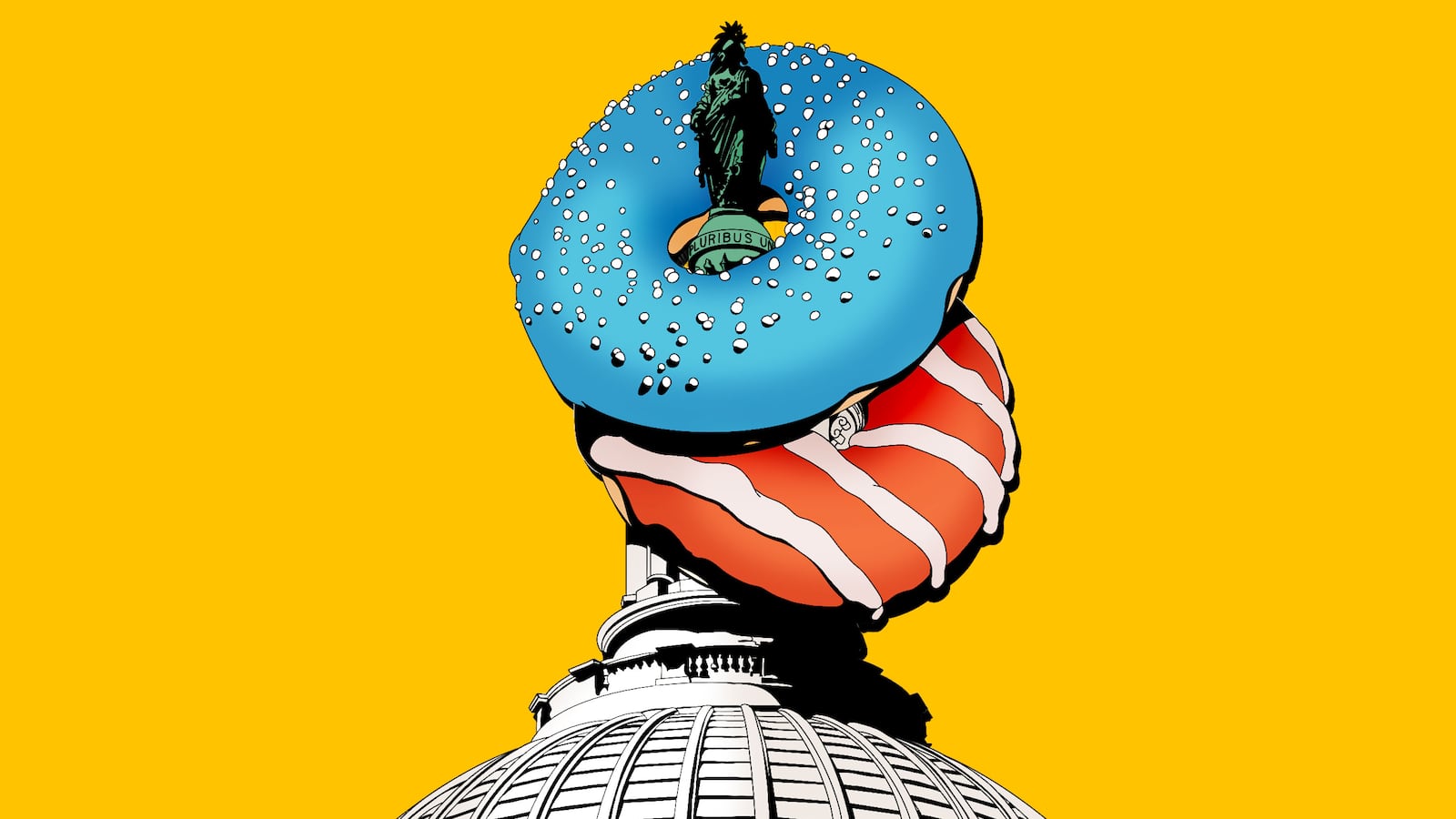“Blame the left” is Washington’s latest craze.
It would not be surprising if it were just coming from the GOP. But scapegoating progressives is now an increasingly popular sport among Washington-based pundits—and even some Democratic Party strategists—trying to identify who or what to blame for President Joe Biden’s low poll numbers and the myriad struggles of his first year in office.
Unfortunately, these analyses are based on several fallacies. First, Biden’s poll numbers after one year in office, while undoubtedly sagging, are still substantially ahead of Donald Trump’s.
Next is the obvious but somehow underrated truism that poll numbers after one year in office are fairly meaningless. Comparisons to prior decades—when partisan politics weren’t nearly as divisive—are also not particularly useful.
Biden’s poll numbers cannot be attributed to any specific action he has or has not taken. In fact, it is highly likely that a combination of factors beyond his control—such as the emergence of a highly contagious and vaccine-resistant strain of COVID-19, and the GOP campaign to reject essential public health measures—has had more of an impact on his numbers than anything for which Biden is personally responsible.
President Biden’s achievements, in fact, outweigh his struggles. On his watch, more than 6.5 million new jobs were added to the economy. Over 200 million Americans got vaccinated. The $1.9 trillion American Rescue Package lifted half of America’s poorest children out of poverty. The $1.2 trillion infrastructure bill was passed with bipartisan support. Biden appointed more judges than any previous president and ended America’s longest war. He’s brought a semblance of stability back to the White House after four years of chaos, irrationality, and corruption.
Yes, the president’s Build Back Better (BBB) spending bill and voting rights reform have stalled. But there is no reason to define Biden solely in the areas where he has faced opposition, especially given the very slim congressional majorities he inherited.
Furthermore, the argument that Biden’s legislative agenda has been co-opted by progressives at the expense of the support of centrists is based on a fallacy.
Nearly everything Biden has done in his first year has been supported by either all the Senate’s Democrats, or all but one or two of them. Does this mean that 48 out of 50 senators are “far-left” and that Biden needs to tailor his policies to suit the other two? And does it mean that the president should be adjusting his policies in a futile attempt to win the votes of so-called “centrist” Republicans who have voted as a bloc of opposition on nearly everything Biden has sent them?
When it comes to elections—and the politics of the nation as a whole—there is, of course, a center.
Look at polling. Look at the “progressive” ideas discussed or supported by Biden—from protecting the climate to providing child care, from better health care to fairer taxation, from gun control to voting rights, from a woman’s right to choose to education reform—they are all supported by a substantial majority of Americans.
Biden is not advancing a “left” agenda, he is fighting for a majoritarian agenda, for goals sought by the vast majority of us that would, in turn, benefit the vast majority of us.
But the grim reality is that D.C. is a donut. There is no “center” in Washington politics. There are two parties and a tiny handful of people caught between them. The only way for Biden to win legislatively in the nation’s capital is for Democrats to win bigger majorities this November.
The problem is that D.C. politics are increasingly unresponsive to the majority of Americans. The system protects and super-empowers a right-leaning minority. Legislators represent states or congressional districts that either lean toward extremes or are gerrymandered to behave that way.
Some ideas associated with progressive causes haven’t been great for Democrats. Defunding the police is one such idea. This was not a good framing of the need for police reform. It may have done some damage, electorally. But it’s not an idea endorsed in any way by Biden, his administration, or Democratic leadership.
However, many of Biden’s biggest triumphs were seeded by the progressives, and thus should be praised as essential to his success. Conversely, many of the things opposed by the GOP—as well as the centrist Democratic Sens. Joe Manchin and Kyrsten Sinema—actually transcend politics. Ensuring the right to vote or combating the climate crisis or granting families and working mothers protections every other developed country in the world gives them are all broadly popular with Americans, and not at all “leftist” initiatives.
But advancing those policies does not require a more centrist president. What’s needed is fewer Republicans and their “centrist” allies in the House and Senate. That will mean embracing Democratic candidates who share the values and goals that are in tune with their states and districts. Once you’re outside of D.C., one size definitely does not fit all in politics. In some states that will mean candidates that are more centrist, though it just as likely could mean turning out more of the left-leaning Democratic base.
Of all the national leaders in the Democratic Party, the reality is that there is one who is best positioned to lead the campaign to achieve that kind of success in November. It just so happens to be the one whom Democrats chose as their candidate for president in 2020 and who, by virtue of his broad national appeal and his commitment to a majoritarian agenda, won by eight million votes.








